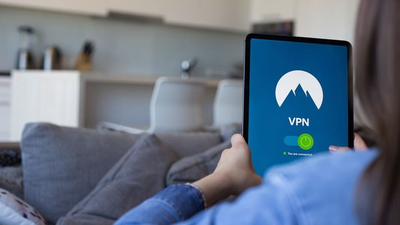
Introduction
Protecting your financial future is crucial for securing your retirement accounts. While investing and saving are essential, it's equally important to safeguard these assets from cyber threats. The reality is that using public Wi-Fi to check your 401(k) or IRA can put your hard-earned savings at risk without proper protection.
This article explores the importance of using a VPN (virtual private network) in securing your retirement accounts and provides guidance on implementing this extra layer of security.
Why Use a VPN for Retirement Accounts?
A VPN creates an encrypted tunnel for your internet traffic, making it extremely difficult for hackers to intercept your sensitive data. By using a VPN, you can protect your login credentials, account numbers, and financial transactions with strong encryption protocols.
When accessing your retirement accounts on public Wi-Fi networks, never do so without activating your VPN first. This simple step can significantly reduce the risk of cyber attacks and protect your savings from unauthorized access.
The Benefits of Using a VPN for Retirement Accounts
A VPN offers numerous benefits in securing your retirement accounts:
- Strong encryption protocols protect your sensitive data from interception by hackers.
- Accessing your accounts on public Wi-Fi networks is safer with a VPN activated.
- You can connect to U.S.-based servers while traveling abroad, ensuring access to your retirement accounts remains secure.
Best Practices for Securing Your Retirement Accounts
To ensure the security of your retirement accounts, follow these steps:
- Choose a reliable VPN: Select a reputable VPN service with strong encryption protocols. Look for services that have been reviewed and recommended by experts.
- Always use VPN on public Wi-Fi: Never access financial accounts on public networks without activating your VPN first.
- Enable two-factor authentication (2FA): Add an extra layer of security to your accounts by enabling 2FA. This requires both a password and a verification code sent to your phone or email.
- Use strong, unique passwords: Create complex passwords for each of your accounts and consider using a password manager to generate and store them securely.
- Regularly monitor your accounts: Check your retirement accounts frequently for any suspicious activity. This will help you detect and respond to potential security breaches promptly.
- Keep software updated: Ensure your devices and apps are always up to date with the latest security patches. This will prevent known vulnerabilities from being exploited by hackers.
- Be wary of phishing attempts: Don't click on suspicious links or provide personal information in response to unsolicited emails. If you're unsure about an email's legitimacy, contact the sender directly or ignore it altogether.
Conclusion
Safeguarding your retirement accounts is not just about protecting your current savings; it's about securing your future. By implementing a VPN and following best security practices, you're taking proactive steps to ensure that the nest egg you've worked so hard to build remains safe and secure.
Remember, the small investment in a quality VPN service is negligible compared to the potential losses from a compromised retirement account. Protect your financial future today by learning more about the importance of VPNs in safeguarding your retirement accounts.